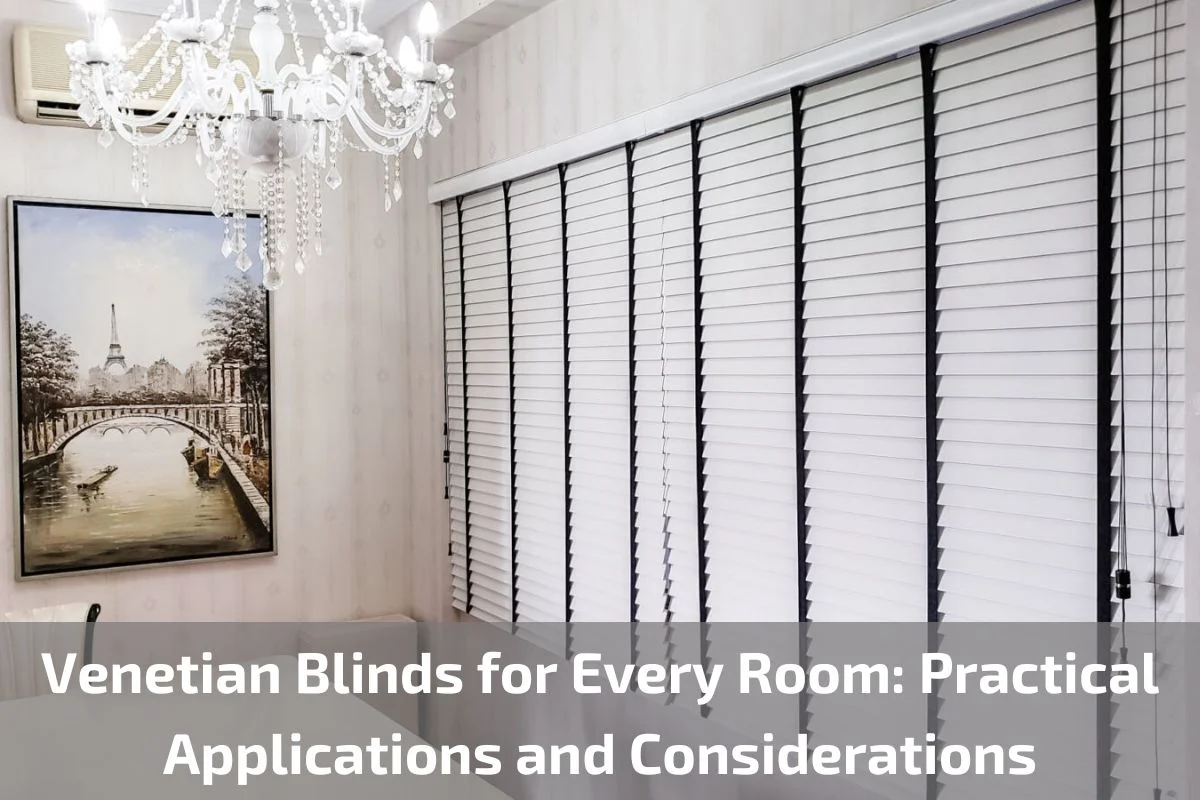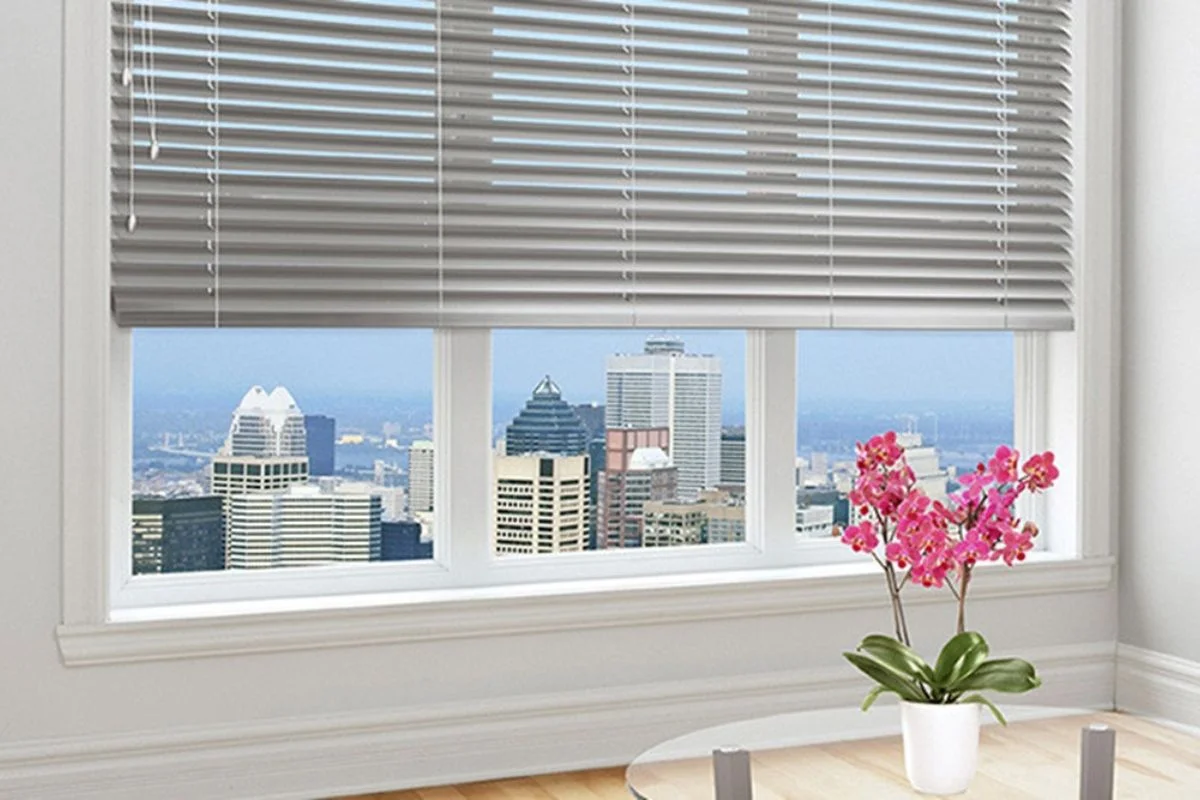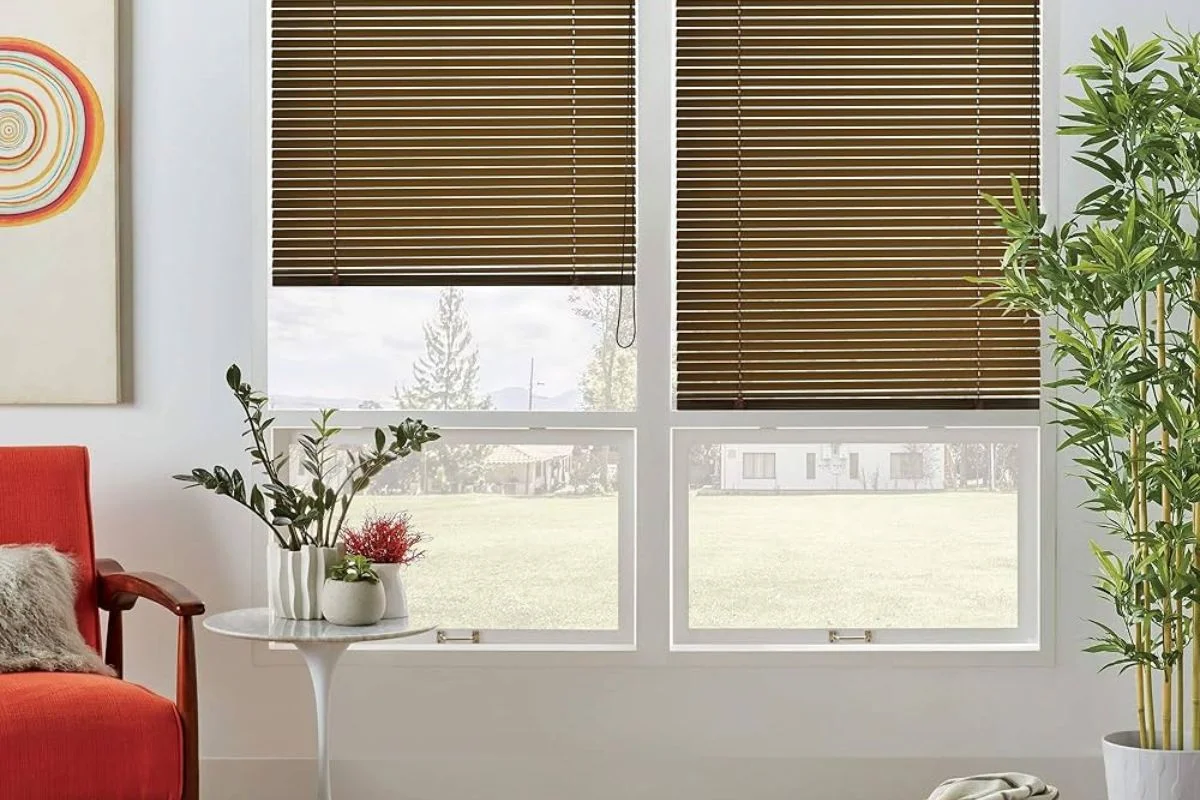
Venetian blinds are a timeless and versatile window treatment option that can elevate the aesthetic appeal and functionality of any room in your home. With their classic design and adjustable slats, Venetian blinds offer a perfect balance of style, privacy, and light control. Whether you’re looking to enhance the ambiance of your living room, create a cozy atmosphere in the bedroom, or add a touch of sophistication to your home office, Venetian blinds provide practical solutions for various spaces.
In this article, we will explore the practical applications and key considerations of using Venetian blinds in different rooms of your home. From their ability to regulate light and privacy to their customizable features and maintenance requirements, understanding the versatility of Venetian blinds can help you make informed decisions when incorporating them into your home décor. Let’s delve into the world of Venetian blinds and discover how they can enhance every room in your home.
Brief Overview of Venetian Blinds:
Venetian blinds are classic window treatments characterized by horizontal slats that can be tilted to control light and privacy. Originating in Venice, Italy, during the 18th century, Venetian blinds have evolved into a popular and versatile option for enhancing the aesthetics and functionality of modern interiors.
These blinds are typically made from various materials such as wood, aluminum, or vinyl, with slats ranging in width from narrow to wide. The slats are suspended by cords or tapes and can be raised or lowered using a pulley system, allowing for customizable light levels and privacy settings.
Venetian blinds offer a timeless charm and blend seamlessly with a variety of interior design styles, from traditional to contemporary. Their ability to filter light while maintaining privacy makes them a practical choice for any room in the home, including living rooms, bedrooms, kitchens, and offices.
In addition to their functional benefits, Venetian blinds are available in a wide range of colors, finishes, and textures, allowing homeowners to customize their window treatments to suit their personal taste and decor preferences.
Importance of Venetian Blinds in Interior Design:
Venetian blinds play a significant role in interior design, offering a multitude of benefits that contribute to the overall aesthetics and functionality of a space. Here are several reasons why Venetian blinds are essential in interior design:
Light Control: One of the primary functions of Venetian blinds is their ability to control natural light. By adjusting the angle of the slats, homeowners can regulate the amount of light entering the room, creating ambiance and atmosphere according to their preferences.
Privacy: Venetian blinds provide an effective solution for maintaining privacy without sacrificing natural light. With the ability to tilt the slats, occupants can control visibility into the room while still enjoying ample daylight.
Versatility: Venetian blinds are highly versatile and can complement a wide range of interior design styles, from traditional to modern. They come in various materials, colors, and finishes, allowing homeowners to customize their window treatments to match their decor scheme seamlessly.
Space Optimization: Unlike bulky drapes or curtains, Venetian blinds have a sleek and compact design that takes up minimal space. This makes them ideal for smaller rooms or windows where space is limited, allowing for a more streamlined and uncluttered look.
Durability and Longevity: Venetian blinds are known for their durability and longevity, making them a practical investment for homeowners. Quality materials and construction ensure that Venetian blinds can withstand daily use and maintain their appearance over time.
Energy Efficiency: Depending on the material and slat orientation, Venetian blinds can contribute to energy efficiency by helping to regulate indoor temperature. By blocking or allowing sunlight as needed, Venetian blinds can reduce the need for heating or cooling, resulting in potential energy savings.
Enhanced Visual Appeal: Venetian blinds add visual interest and texture to a room’s decor, enhancing its overall appeal. Whether they are made from natural wood, sleek aluminum, or modern vinyl, Venetian blinds can serve as a focal point or complement existing design elements.
Advantages and Disadvantages of Venetian Blinds:
Venetian blinds offer a range of benefits that make them a popular choice for window treatments in interior design, but they also come with some drawbacks to consider. Let’s explore the advantages and disadvantages of Venetian blinds:
Advantages:
Light Control: Venetian blinds provide precise control over the amount of natural light entering a room. By adjusting the angle of the slats, homeowners can regulate brightness levels according to their preferences, creating a comfortable and inviting atmosphere.
Privacy: Venetian blinds offer effective privacy control, allowing occupants to enjoy seclusion without compromising on natural light. By tilting the slats, homeowners can block or allow visibility into the room as desired.
Versatility: Venetian blinds are available in a wide range of materials, colors, and finishes, making them suitable for various interior design styles. Whether homeowners prefer the warmth of natural wood, the sleekness of aluminum, or the affordability of vinyl, there is a Venetian blind option to suit their preferences.
Durability: Venetian blinds are known for their durability and longevity. Made from sturdy materials such as wood, aluminum, or vinyl, Venetian blinds can withstand daily use and maintain their appearance over time with minimal maintenance.
Easy Maintenance: Venetian blinds are relatively easy to clean and maintain. Regular dusting or vacuuming of the slats helps prevent buildup of dirt and dust, while occasional spot cleaning keeps the blinds looking fresh and functional.
Disadvantages:
Limited Insulation: Venetian blinds may not provide as much insulation as thicker window treatments like curtains or drapes. While they can help regulate temperature to some extent, they may not be as effective at reducing heat loss or gain through windows.
Noise Reduction: Venetian blinds do not offer significant sound absorption properties, so they may not be as effective at reducing noise levels as heavier window treatments.
Potential for Damage: Venetian blinds made from certain materials, such as wood, may be more prone to damage from moisture or rough handling. Additionally, the cords or mechanisms used to operate the blinds may wear out over time and require replacement.
Limited Design Options: While Venetian blinds come in a variety of colors and finishes, they may not offer as much versatility in design as other window treatments like curtains or shades. This limitation may restrict homeowners’ ability to achieve specific aesthetic goals.
Maintenance of Slats: Cleaning the individual slats of Venetian blinds can be time-consuming and labor-intensive, particularly for blinds with narrow slats. This may deter some homeowners from choosing Venetian blinds, especially in rooms with large windows or multiple blinds.
Creative Design Ideas and Inspirations with Venetian Blinds:
Venetian blinds offer endless possibilities for enhancing the aesthetics and functionality of your living spaces. Here are some creative design ideas and inspirations to inspire your next interior design project:
Mix and Match Materials: Experiment with mixing different materials for a unique look. Combine wooden Venetian blinds with metal or vinyl blinds for a striking contrast in texture and tone.
Color Blocking: Use Venetian blinds to create bold color blocking effects in your room. Choose blinds in contrasting colors to add visual interest and drama to your windows.
Layered Look: Layer Venetian blinds with curtains or sheers for added depth and dimension. Pairing blinds with soft fabrics creates a cozy and inviting atmosphere while allowing for greater light control and privacy.
Graphic Patterns: Opt for Venetian blinds with graphic patterns or prints to make a statement in your space. Geometric designs, stripes, or floral motifs can add personality and flair to your windows.
Customization: Customize your Venetian blinds with decorative tapes or trims for a personalized touch. Choose tapes in complementary or contrasting colors to coordinate with your decor scheme.
Dual Functionality: Install Venetian blinds in rooms where both privacy and light are essential, such as bedrooms or home offices. The adjustable slats allow you to control both aspects with ease.
Natural Elements: Bring the outdoors in by selecting Venetian blinds made from natural materials like bamboo or woven grass. These blinds add warmth and texture to your space while creating a relaxed and earthy vibe.
Sleek and Minimalist: Embrace a sleek and minimalist aesthetic with Venetian blinds in neutral tones and clean lines. This timeless look complements modern and contemporary interiors beautifully.
Statement Blinds: Make a bold statement with oversized Venetian blinds that cover entire walls or floor-to-ceiling windows. Choose blinds in a vibrant color or metallic finish to create a focal point in your room.
Adjustable Slats: Take advantage of the adjustable slats on Venetian blinds to play with light and shadow in your space. Experiment with different slat angles to create interesting patterns and effects throughout the day.
Choosing the Right Venetian Blinds for Your Space:
Selecting the perfect Venetian blinds for your home involves considering various factors to ensure they complement your decor, meet your functional needs, and fit your budget. Here are some key considerations to help you choose the right Venetian blinds for your space:
Window Size and Type: Measure your windows accurately to determine the size and type of Venetian blinds needed. Consider whether your windows are standard-sized, bay windows, or specialty shapes, as this will impact the selection of blinds.
Material: Venetian blinds are available in a variety of materials, including wood, aluminum, and vinyl. Each material offers different aesthetics, durability, and maintenance requirements. Choose a material that aligns with your style preferences and practical considerations.
Color and Finish: Consider the color and finish of the blinds in relation to your decor scheme. Opt for neutral tones for a timeless look or bold colors for a statement-making effect. Choose a finish that complements other elements in the room, such as furniture or wall colors.
Slat Size: Venetian blinds come in different slat sizes, ranging from narrow to wide. Larger slats provide a more modern and streamlined appearance, while smaller slats offer a classic and traditional look. Select a slat size that suits your aesthetic preferences and the scale of your windows.
Operation Mechanism: Decide on the preferred operation mechanism for your Venetian blinds. Traditional blinds are operated manually using cords or wands, while motorized options offer remote-controlled or automated operation for convenience. Choose the mechanism that best suits your lifestyle and preferences.
Customization Options: Explore customization options available for Venetian blinds, such as decorative tapes, valances, or cordless designs. These options allow you to personalize your blinds to match your decor style and enhance their visual appeal.
Budget: Determine your budget for Venetian blinds and consider the cost of materials, customization, and installation. Compare prices from different suppliers and consider the long-term value and durability of the blinds when making your decision.
Sample Testing: If possible, request samples or swatches of Venetian blinds to see how they look in your space before making a final decision. This allows you to assess the color, texture, and overall appearance of the blinds in your home environment.
Installation and Maintenance Tips for Venetian Blinds:
Proper installation and maintenance are essential to ensure that your Venetian blinds function smoothly and maintain their appearance over time. Here are some tips to help you install and care for your Venetian blinds effectively:
Installation Tips:
Gather Necessary Tools: Before starting the installation process, make sure you have all the necessary tools on hand, including a drill, screws, screwdriver, measuring tape, and a level.
Measure Accurately: Take precise measurements of your windows to ensure that your Venetian blinds fit perfectly. Measure both the width and height of the window opening, and account for any obstructions such as window handles or trim.
Mounting Options: Decide whether you want to mount the blinds inside the window frame (recessed) or outside the frame (face-mounted). Choose the mounting option that best suits your window and desired aesthetic.
Follow Instructions: Carefully read and follow the manufacturer’s instructions for installing your Venetian blinds. Each set of blinds may have specific installation steps and requirements, so it’s essential to follow the guidelines provided.
Secure Mounting Brackets: Use the appropriate mounting brackets to secure the blinds in place. Ensure that the brackets are level and securely attached to the window frame or wall to prevent the blinds from sagging or falling.
Maintenance Tips:
Regular Dusting: Dust your Venetian blinds regularly to prevent buildup of dirt and debris. Use a feather duster, microfiber cloth, or vacuum with a brush attachment to gently dust the slats from top to bottom.
Spot Cleaning: For stubborn stains or spots, spot clean the affected areas using a mild detergent or soapy water. Avoid using harsh chemicals or abrasive cleaners, as they may damage the finish of the blinds.
Avoid Excessive Moisture: Venetian blinds made from wood or faux wood should be kept away from excessive moisture to prevent warping or damage. Avoid installing these blinds in high-humidity areas such as bathrooms or kitchens unless they are specifically designed for moisture resistance.
Lubricate Moving Parts: If your Venetian blinds have a tilt mechanism or lift cords, lubricate the moving parts periodically to ensure smooth operation. Use a silicone-based lubricant or spray to lubricate the mechanisms and prevent sticking or binding.
Inspect Regularly: Periodically inspect your Venetian blinds for any signs of damage or wear and tear. Check for loose or broken slats, damaged cords or mechanisms, and any other issues that may affect the functionality or appearance of the blinds.
Conclusion:
Venetian blinds are a timeless and versatile window treatment option that offers both style and functionality for any home. With their ability to control light, provide privacy, and enhance the aesthetics of a room, Venetian blinds have become a popular choice among homeowners and interior designers alike.


